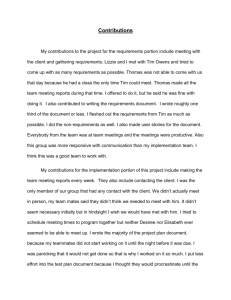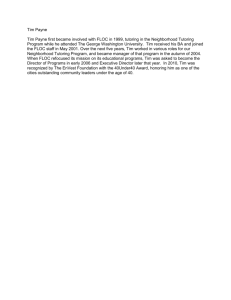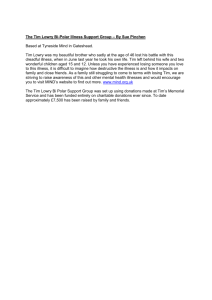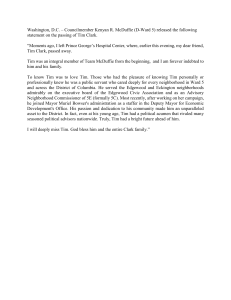On The Rainy River
advertisement
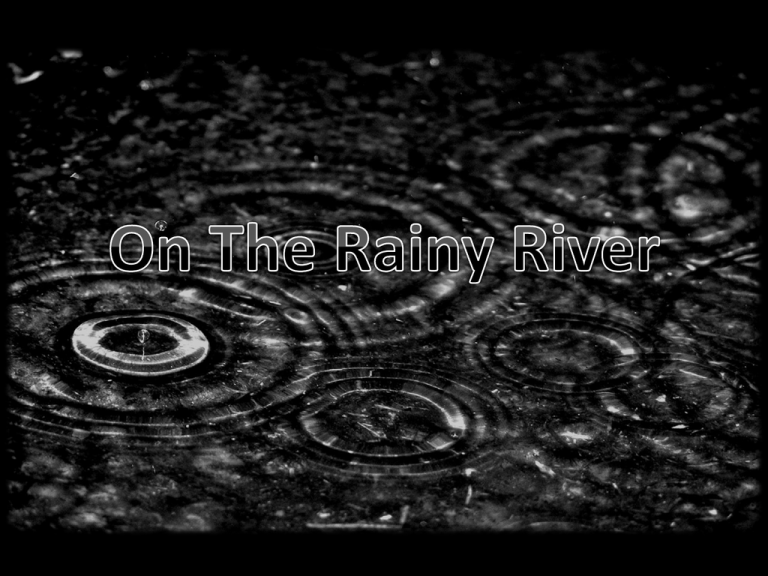
Characters: Characters: Initial Incident : The draft notice arrived on June 17, 1968. It is the initial incident of the story which causes Tim to have all the problems. At this point, he did not want to go to the Vietnam War because of the fear of death and killing others. He said, “I sometimes felt the fear spreading inside me like weeds. I imagined myself dead. I imagined myself doing things I could not do. Charging an enemy position, taking aim at another human being.” This quotation proves how Tim hates to get involved in a war. Dilemmas : Tim had two choices. To go to war or stay in Canada. Indeed, Tim really did not want to go to a war. The reason why he hates the war is because he could die in a war and kill others. Therefore, he actually planned to live in Canada to avoid the war. That was the only way because he could not qualify for CO status, which requires him to have religious grounds or history as a pacifist. It was only a few hundred miles north, which is not far. However, he started to consider about eyes of the other people such as family and neighbours. It makes him struggling a lot. He was afraid of others to call him traitor. He does not want to be embarrassed. Tim was also feared losing the respect of his parents and he feared the law and ridicule and censure. Those two thoughts conflicts in Tim’s mind and he struggles in between them until the end of the story. Turning Point : Turning point is the part when Tim was in a boat with Elroy. When he tried to jump out of the boat, his own history flashed out and he could not jump. The action implies the meaning of leaving country. He could not leave his home country. He was fearful about the expectations of other people. Tim finally decided to go to war even though he hates it. Epiphanies : Tim realizes that he could not leave his home country. He could not tolerate and endure disgrace or patriotic ridicule. Conclusion: At the end, Tim decided to go to the war. He was not satisfied with his decision because he was almost pushed into the war by other people’s expectation. He does not want to be called Traitor and he did not want to be embarrassed. Those things make him join the war and he actually cried when he made the decision. It was the poor choice for him. He called himself a coward not because he ran away from the reality, but he went to the war. Themes: • Choice: – our choices define who we are and who we are to become – “I would go to war – I would kill and maybe die – because I was embarrassed not to.” pg 83 • Embarrassment: – risk of embarrassment can be a motivating factor to do something against your initial will • Alienation: – when you feel alienated you can either run or try to work things out – “ I felt isolated; I spent a lot of time alone.” pg 73 Conflicts: • Person versus Environment: – Environment in this case refers to society. There are two main ways that society was in conflict with the protagonist: The first one is the war and the draft letter, it is a case of society taking away a man's freedom of choice and conscripting him into a war that he believes is unjust. This is the main external conflict of the story. – The other way that society comes into conflict with the protagonist is that the expectations of his home town held him from escaping from the war by seeking refuge in Canada. The shame and guilt had been repeatedly stated as the sole cause of him considering joining up with the army and go to Vietnam. • Person versus Himself: – O'Brien's struggle with himself is the internal conflict of the story. The conflict arises from his desire to escape the war due to moral reasons (he objects the war) and for self-preservation (He doesn't want to die in the war), and also his fear of being marked as a traitor and humiliated in his home town. The conflict is between the side of him that wants to follow his heart and his conscience, and the part of him that feared the consequences.

